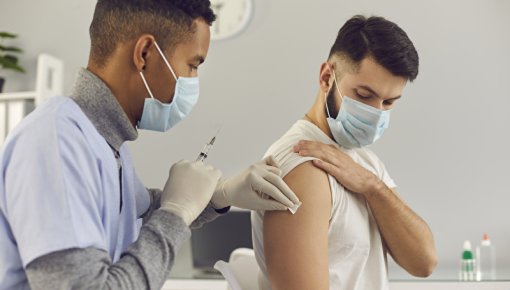COVID-19 vaccines for adults

COVID-19 vaccines can reduce the risk of becoming very ill with the virus. Various vaccines are available. Yearly boosters are recommended for some people. This depends on factors such as your age.
COVID-19 vaccines cause the immune system to make antibodies and special cells (like T cells) that target a foreign protein on the surface of the coronavirus. If the vaccinated person later comes into contact with the coronavirus, their immune system quickly recognizes and fights it.
Most adults have already had several COVID-19 vaccinations. Many have also had the virus and recovered from it. But because the virus can mutate and change, it can sometimes be a good idea to have another booster vaccine.
